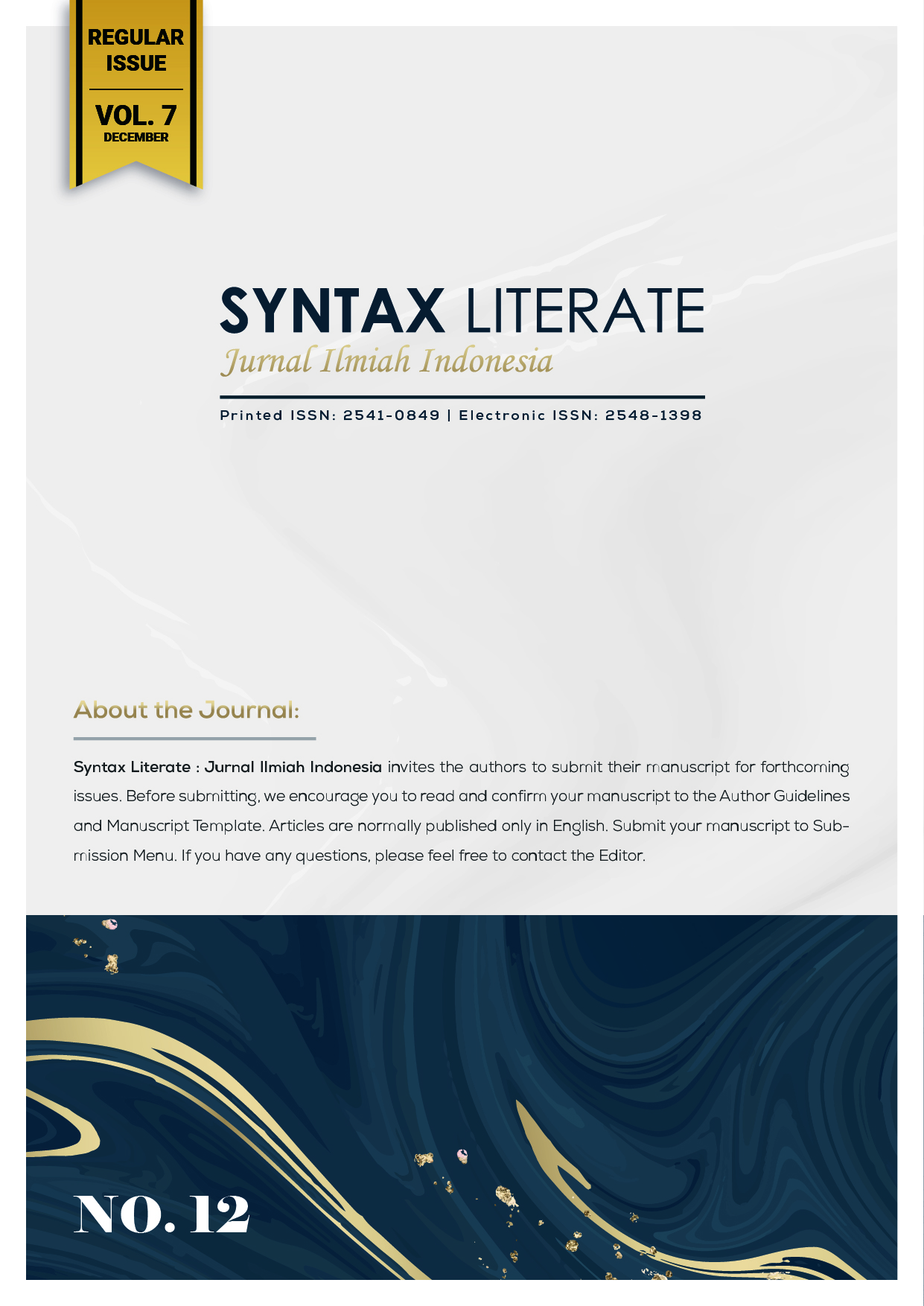Representasi Ide-Ide Feminisme dalam Lagu dan Pidato Taylor Swift
Abstract
Taylor Swift merupakan musisi perempuan asal Amerika yang dikenal sebagai ikon feminisme setelah berganti genre musik dari country ke pop pada album 1989. Lirik lagu Taylor Swift yang dahulu berfokus pada hubungan percintaan, kini lebih menyoroti permasalahan perempuan, seperti standar ganda, seksisme, dan misogini. Di samping itu, Swift juga mendukung Equality Act dan menjadi simpatisan untuk kaum LGBTQIA+. Penelitian ini bertujuan mengkaji dan memberikan pemahaman mengenai representasi ide-ide feminisme dalam lirik lagu dan pidato Taylor Swift, serta mencermati pengaruh ide-ide tersebut dalam wacana white feminism di Amerika. Penelitan ini menggunakan metode penelitian kualitatif, dengan teknik analisis tekstual menggunakan lensa Representasi dan White Feminism. Hasil pengamatan lirik lagu dan pidato Taylor Swift menunjukkan bahwa terdapat ide-ide feminisme, seperti pemberdayaan diri dan perjuangan kesetaraan, terutama dalam dukungannya terhadap kaum LGBTQIA+. Namun demikian, ide-ide feminisme yang diperlihatkan Taylor Swift melalui karya-karyanya masih bersifat heteronormatif dan berciri feminisme kulit putih.
Downloads
References
Dinkins, R. (2016). Clinton Can’t Break Every Glass Ceiling. Usnews.Com.
Donella, L. (2018). Taylor Swift Is The 21st Century’s Most Disorienting Pop Star. Npr.Org.
Dubrofsky, R. E. (2016). A vernacular of surveillance: Taylor Swift and Miley Cyrus perform white authenticity. Surveillance & Society, 14(2), 184–196. https://doi.org/10.24908/ss.v14i2.6022. Google Scholar
Griffith, J. (2020). “If I Was a Man, Then I’d Be the Manâ€: Understandings of Gender, Race, and Social Class in Postfeminist Popular Culture. University of Rhode Island. Google Scholar
Hooks, B. (1984). Feminist theory: From margin to center Boston. MA: SAGE Publications. Google Scholar
Kreps, D. (2015). Taylor Swift Talks Feminism, Misogyny in Maxim. Rollingstone.Com.
Lykke, N. (2010). Feminist studies: A guide to intersectional theory, methodology and writing. Routledge. Google Scholar
Mann, S. A., & Huffman, D. J. (2005). The decentering of second wave feminism and the rise of the third wave. Science & Society, 69(1), 56–91. Google Scholar
Moraga, C., & Anzaldúa, G. (2015). Introduction, 1981. any: SUNY Press. Google Scholar
Nisbett, G., & Schartel Dunn, S. (2021). Reputation matters: Parasocial attachment, narrative engagement, and the 2018 Taylor Swift political endorsement. Atlantic Journal of Communication, 29(1), 26–38. https://doi.org/10.1080/15456870.2019.1704758. Google Scholar
O’Neill, L. (2015). The representation of Miley Cyrus and Taylor Swift as postfeminist celebrity musicians: Image, Text and Audiences. Murdoch University. Google Scholar
Olson, J. (2021). Feminism. History.Com.
Pollock, V. (2014). Forever adolescence: Taylor Swift, eroticized innocence, and performing normativity. Georgia State University. Google Scholar
Prins, A. (2020). From awkward teen girl to Aryan goddess meme: Taylor Swift and the hijacking of star texts. Celebrity Studies, 11(1), 144–148. https://doi.org/10.1080/19392397.2020.1704431. Google Scholar
Railton, D. (2011). Music video and the politics of representation. Edinburgh University Press. Google Scholar
Schuller, K. (2021). The trouble with white women: A counterhistory of feminism. New York: Hachette Book Group. Google Scholar
Spencer, L. (2010). Taylor Swift. Toronto: EWC Press. Google Scholar
Susilawati. (2017). Feminisme Gelombang Ketiga. Jurnalperempuan.Org.
Tong, R., & Botts, T. F. (2018). Feminist thought: A more comprehensive introduction. Routledge. Google Scholar
Vernallis, C. (2013). Unruly media: YouTube, music video, and the new digital cinema. Oxford University Press. Google Scholar
Yee, H. R. (2020). Taylor Swift vs Scooter Braun: why the battle for her back catalogue matters much more than you think. Stylist.Co.Uk.
Zarnow, L., & Hewitt, N. (2010). No Permanent Waves: Recasting Histories of US Feminism. Rutgers University Press. Google Scholar
Copyright (c) 2022 Paula Rita Wijayanti, Asri Saraswati

This work is licensed under a Creative Commons Attribution-ShareAlike 4.0 International License.











